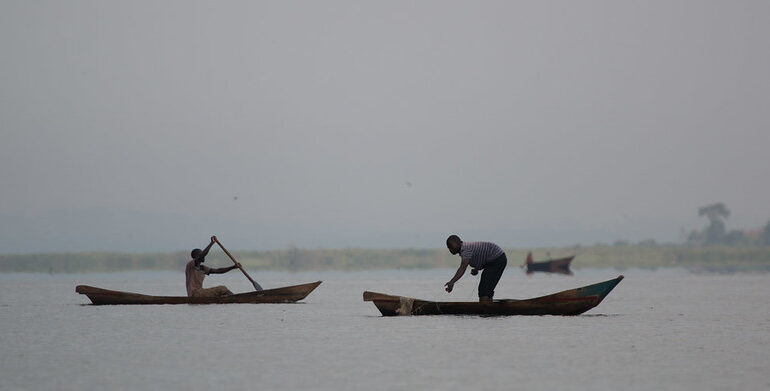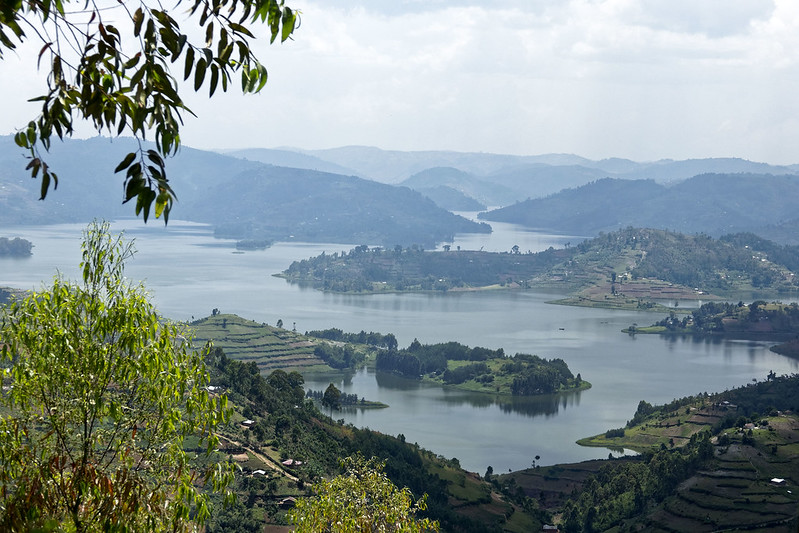
August 15, 2024
Uganda, known for its lush landscapes and abundant natural resources, is home to a myriad of lakes that play a pivotal role in supporting local communities and their livelihoods. These lakes are not just bodies of water; they are lifelines that sustain the daily lives of millions of Ugandans.
From fishing and agriculture to transportation and tourism, the lakes of Uganda are integral to the social and economic fabric of the country. In this blog post, we will explore the multifaceted role of Uganda’s lakes in supporting local communities and enhancing their livelihoods.
Fishing: A Primary Source of Income
Fishing is the most significant livelihood activity associated with Uganda’s lakes, particularly Lake Victoria, which is the largest lake in Africa. This vast freshwater body is teeming with fish, including Nile perch and tilapia, which are vital not only for local consumption but also as export commodities.
The fishing industry around Lake Victoria employs hundreds of thousands of people, providing income for fishermen, fish processors, and traders.
In addition to Lake Victoria, other lakes such as Lake Albert, Lake Edward, and Lake Kyoga are also crucial fishing grounds. These lakes support local economies by providing fish that are sold in markets across the country and beyond.
The income generated from fishing helps to improve the living standards of local communities, allowing them to afford basic needs such as food, education, and healthcare.
However, the sustainability of fishing as a livelihood is increasingly under threat due to overfishing, pollution, and climate change.
The depletion of fish stocks has led to reduced catches, which in turn affects the income of fishermen and related businesses. To address these challenges, there have been efforts to promote sustainable fishing practices and the establishment of fish breeding programs to replenish the depleted stocks.
Agriculture and Irrigation: Sustaining Food Security
The lakes of Uganda also play a crucial role in supporting agriculture, which is the backbone of the country’s economy.
The fertile lands surrounding the lakes benefit from the availability of water for irrigation, allowing farmers to grow crops throughout the year. This is especially important during dry seasons when rain-fed agriculture is not possible.
Lakes such as Lake Kyoga and Lake Albert provide essential water resources for irrigation schemes that support the cultivation of staple crops like maize, rice, and vegetables. These crops are not only consumed locally but also sold in markets, providing a vital source of income for farming communities.
The proximity of lakes to agricultural land ensures that communities have access to water for both crops and livestock, thereby enhancing food security.
Additionally, the nutrient-rich sediments deposited by lakes contribute to the fertility of the surrounding soils, which boosts agricultural productivity. The agricultural produce from these areas feeds into the broader economy, with surplus crops being transported to urban centers for sale, thus integrating rural communities into the national economy.

Transportation and Trade: Connecting Communities
Uganda’s lakes also serve as important transportation routes, facilitating trade and the movement of people. Lake Victoria, for example, connects Uganda to neighboring countries such as Kenya and Tanzania, making it a crucial link for regional trade. Goods such as fish, agricultural products, and other commodities are transported across the lake, which reduces transportation costs and time compared to road transport.
Local communities rely on the lake’s water transport for accessing markets, healthcare, and educational facilities. Boats and ferries operating on the lakes provide an affordable means of transport for people living in remote areas, thus improving their access to essential services and opportunities.
The transportation networks on Uganda’s lakes also support tourism, which is a growing source of revenue for local communities. Tourists visiting lake destinations such as the Ssese Islands or Lake Bunyonyi often use boats to explore the area, contributing to the income of boat operators and tour guides.
Tourism and Cultural Heritage: Preserving Traditions
Uganda’s lakes are also hubs of cultural heritage and tourism, which provide alternative sources of income for local communities. Lakes like Bunyonyi and the crater lakes in western Uganda are popular tourist destinations known for their scenic beauty and tranquility. The tourism industry around these lakes creates jobs for local people as guides, hospitality workers, and craftsmen.
Cultural tourism is also a significant aspect of the livelihoods supported by Uganda’s lakes. Communities living around the lakes have rich traditions and customs that are closely tied to the water bodies.
For example, the Baganda people have cultural and spiritual connections to Lake Victoria, which are showcased through traditional ceremonies and rituals. By participating in cultural tourism, visitors help preserve these traditions and provide financial support to the communities.
Moreover, the revenue generated from tourism is often reinvested in community projects such as schools, healthcare centers, and infrastructure development, which further improves the quality of life for residents.
Challenges and the Need for Sustainable Management
While Uganda’s lakes provide numerous benefits to local communities, they are facing significant challenges that threaten their ability to support livelihoods.
Pollution from industrial and agricultural activities, deforestation, and the effects of climate change are degrading water quality and reducing the availability of resources. These issues, if not addressed, could lead to long-term negative impacts on the communities that depend on the lakes.
To ensure that Uganda’s lakes continue to support local communities, there is a need for sustainable management practices. This includes enforcing regulations to control pollution, promoting sustainable fishing and agricultural practices, and involving local communities in conservation efforts.
Additionally, investment in infrastructure such as clean water supplies and waste management systems is essential to protect the health of both the lakes and the people who rely on them.
Uganda’s lakes are more than just natural landmarks; they are vital to the livelihoods of millions of people. From providing fish and water for agriculture to serving as transportation routes and cultural heritage sites, the lakes of Uganda play a central role in the social and economic well-being of the nation.
However, to ensure that these water bodies continue to support future generations, it is crucial to adopt sustainable practices that protect and preserve these invaluable resources. By doing so, Uganda can maintain the delicate balance between development and conservation, ensuring that its lakes remain a source of life and prosperity for all.



